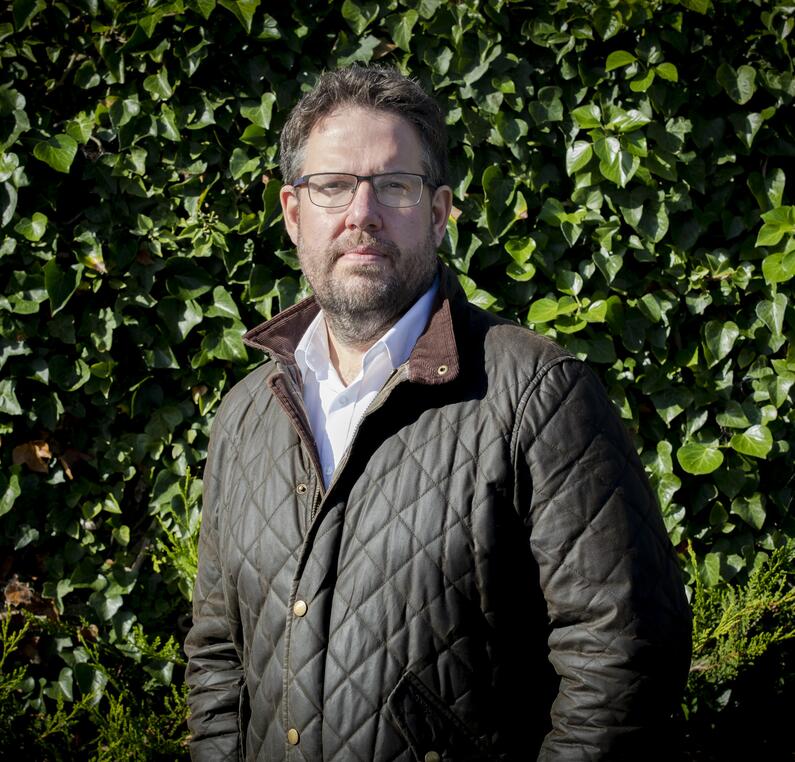
Edward Jones
I come from a farming family background and grew up on a beef and sheep farm on Anglesey, North Wales. Not only was I fortunate to grow up on a farm but also lucky to feast on unpasteurised milk, fruit and vegetables from the garden, and eggs from free roaming chickens. I’ve always had a passion for farming but also an interest in banking and finance.
After completing my PhD (Economics) at the local university I embarked upon a career in banking and specialising in the area of quantitative finance. I moved back to Anglesey in 2015 to become a Lecturer in Economics at Bangor Business School, Bangor University. This allowed me to build upon my experience in the banking industry and continue developing cutting edge solutions to today's financial and economic problems. This appointment also gave me the opportunity to live and work (part-time) on the family beef and sheep farm, and renovate my great-grandparents farmhouse and become the fourth generation family member to live there. As part of my role at the School, I have led and delivered a number of high profile projects with external stakeholders; including working with the Welsh and UK Governments on devolved taxes, being an Expert Advisor on fiscal policy for the National Assembly for Wales, developing predicative models for a FinTech50 recognised start-up, and developing tools for a regional Economic Ambition Board to aid public investment decisions. In 2019, I was appointed as a Non-Executive Director of M-SParc, Wales’ only dedicated Science Park.
Early in 2018, I decided to enrol on the AgriAcademy Rural Leadership Programme so to develop the skills and professional network required to allow me to have a positive impact on the agricultural industry. This Programme included meeting with various industry leaders and policymakers in Brussels and in Cardiff and provided me with a unique insight into the industry, and exposed me to a network of ambitious and dynamic individuals, all with a passion for farming. Nuffield scholarships were always a prominent feature of farming in Wales and something that I’d always hoped to apply for following the Rural Leadership Programme. This scholarship presents me with a unique opportunity to combine my background in banking with my passion for agriculture and I’m honoured to join the Nuffield ranks.
I am grateful to my family and friends for their support and am very grateful to the Royal Welsh Agricultural Society for their generous sponsorship.
Royal Welsh Agricultural Society

Study Overview
$17bn was invested worldwide in agriculture and food technology in 2018, up 44% on the previous year. Booming investors’ interest in AgriTech (i.e. the marriage of agriculture and new technology) should hardly come as a surprise; there is a need to increase food production and distribution quickly so as to feed a much larger population in a way that is sustainable for the planet. Investors allow entrepreneurs and farmers to have a profound impact on the industry by ensuring they have the necessary finance to develop new business models and reshape production, consumption, transportation and delivery systems. Policymakers hope that these will help increase food production and distribution quickly so as to feed a much larger population (global population is predicted to reach 9.8bn by 2050, an increase of 2bn from 2019) in a way that is sustainable for the planet.
I will use my scholarship and the Nuffield network to explore and evaluate the AgriTech vision of investors (the providers of finance), entrepreneurs and farmers (those who seek-and-solve), and policymakers (those who guide and regulate the industry). To succeed in addressing these challenges, there needs to be a shared vision and collaboration between investors, entrepreneurs, farmers, and policymakers.
The specific objectives of my project are:
1. Identify if there is a shared and complementary vision across investors, entrepreneurs, farmers, and policymakers for increasing food production and distribution while reducing the impact of agriculture on the planet,
2. Assess which specific AgriTech innovations are attracting investment and the impact these new technologies will have on the industry,
3. Highlight how the private and public sector can cooperate to provide the finance required to allow AgriTech innovations to flourish.